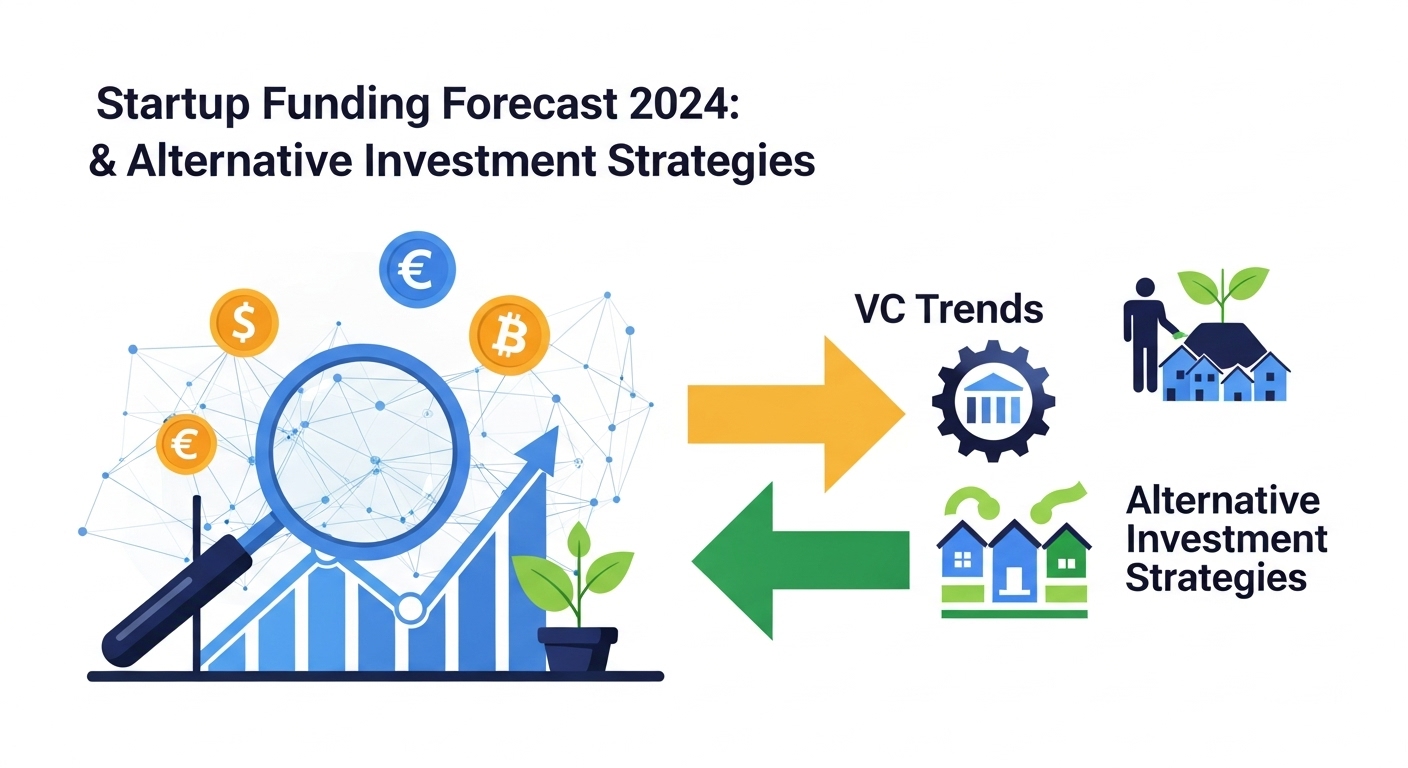The AI Revolution is Here, But Not How You Think
It’s impossible to scroll through a tech feed, attend a conference, or even have a coffee with a fellow founder without hearing the two magic words: Generative AI. The hype is palpable, painting pictures of a future run by autonomous code and sentient chatbots. While some of that is excitingly futuristic, it often overshadows the immediate, practical, and transformative impact AI is having right now. For the world of tech startups & innovation, generative AI isn’t just a buzzword; it’s rapidly becoming the most powerful tool in the arsenal, a veritable co-pilot for lean teams aiming to build the next big thing.
Forget the science fiction for a moment. The real story is about how a two-person startup can now build a functional prototype in a weekend, how a non-designer can create stunning marketing visuals, and how a small team can offer 24/7, human-like customer support. This isn’t about replacing human ingenuity but augmenting it. Generative AI is democratizing creation, leveling the playing field, and allowing startups to punch far above their weight. Let’s dive beyond the hype and explore how this technology is tangibly fueling the engine of modern startups.
The New Startup Co-Pilot: AI in Product Development
The journey from a brilliant idea to a minimum viable product (MVP) is a gauntlet of challenges for any startup. It demands time, technical expertise, and capital—three resources that are often in short supply. Generative AI is fundamentally changing this equation, acting as a force multiplier for product development teams.
Rapid Prototyping and MVP Creation
In the past, creating a prototype meant weeks of wireframing, designing, and front-end coding. Today, founders can use AI tools to turn a simple text description into a functional user interface mockup in minutes. Tools like Galileo AI or Uizard can generate design screens from a prompt, allowing for rapid iteration and user testing before a single line of production code is written. This dramatically shortens the feedback loop, enabling startups to validate their ideas faster and with significantly less upfront investment. The ability to visualize an app’s flow and feel almost instantly is a game-changer for early-stage validation.
Code Generation and Intelligent Debugging
For the technical co-founder, generative AI tools like GitHub Copilot or Amazon CodeWhisperer are nothing short of revolutionary. These AI-powered pair programmers integrate directly into the coding environment, suggesting entire blocks of code, completing functions, and even writing unit tests based on the context of the project. This doesn’t just speed up development; it also helps reduce errors and allows developers to focus on complex architectural problems rather than boilerplate code. When bugs inevitably appear, AI can analyze error logs and suggest potential fixes, turning hours of frustrating debugging into a more streamlined process. This acceleration is critical for tech startups & innovation, as speed to market is often a key determinant of success.
Streamlining UI/UX Design and Personalization
Great design is no longer a luxury reserved for companies with large design teams. Generative AI is making sophisticated design accessible to everyone. Startups can use tools like Midjourney or DALL-E 3 to create unique logos, illustrations, and brand assets from simple text prompts. On the user experience front, AI can analyze user behavior to suggest UI improvements and create deeply personalized experiences. Imagine an e-commerce app that dynamically changes its layout and product recommendations in real-time for each user, optimized by an AI model. This level of personalization was once the exclusive domain of giants like Amazon and Netflix; now, it’s within reach for nimble startups.
Supercharging Operations: Efficiency Gains Across the Business
A successful startup isn’t just about a great product; it’s about executing flawlessly on marketing, sales, and support. Generative AI is injecting a new level of efficiency and capability into these crucial business operations, allowing small teams to operate with the sophistication of a much larger enterprise.
Automating and Humanizing Customer Support
Customer support is a critical but resource-intensive function. Modern AI chatbots, powered by large language models, have moved beyond clunky, scripted responses. They can now understand context, handle complex queries, and maintain a natural, conversational tone. A startup can deploy an AI agent to handle 80% of incoming support tickets 24/7, answering questions, guiding users through features, and even processing returns. This frees up the human team to focus on high-value, complex customer issues that require genuine empathy and problem-solving, leading to better customer satisfaction and lower operational costs.
Intelligent Content and Marketing Creation
Content is king, but creating high-quality content consistently is a major challenge. Generative AI is a content creation powerhouse. It can help draft blog posts, write compelling email newsletters, generate scripts for promotional videos, and craft engaging social media updates. Marketing teams can use AI to brainstorm campaign ideas, perform keyword research, and generate dozens of ad copy variations for A/B testing in seconds. This allows startups to maintain a robust and professional marketing presence without hiring a large agency or in-house team, ensuring their innovative products get the visibility they deserve.
Democratizing Data Analysis and Business Intelligence
Data-driven decision-making is crucial for growth. However, most early-stage startups can’t afford a dedicated data scientist. Generative AI tools are changing this by allowing anyone to ‘talk’ to their data. Founders can now ask questions in plain English, such as, “What was our customer churn rate last quarter by region?” or “Show me the correlation between website traffic sources and conversion rates.” The AI can then analyze the data, generate visualizations, and provide a summary of key insights. This empowers leaders to make smarter, faster decisions based on evidence rather than intuition.
Navigating the Challenges: The Other Side of the AI Coin
While the potential of generative AI is immense, it’s not a magic wand. Adopting this technology comes with its own set of challenges that startups must navigate carefully.
Cost and Computational Power
While many AI tools offer free or low-cost tiers, scaling their use or training custom models can become expensive quickly. API calls to powerful models like GPT-4 are charged per token, and costs can add up for high-volume applications like a customer-facing chatbot. Startups need to carefully monitor their usage and conduct a cost-benefit analysis to ensure a positive return on investment.
Ethical Considerations and Data Privacy
With great power comes great responsibility. Startups using AI must be vigilant about ethical considerations. This includes ensuring their models are not perpetuating biases, being transparent with users about when they are interacting with an AI, and, most importantly, protecting user data. Feeding sensitive customer information into third-party AI models without proper safeguards is a significant privacy risk.
The Talent Gap and Implementation
Effectively leveraging AI requires more than just signing up for a service. It requires a new skill set often called “prompt engineering” and an understanding of how to integrate these tools into existing workflows. There is currently a talent gap for individuals who possess both deep domain expertise and a practical understanding of how to apply AI. Startups need to invest in training their teams or hire strategically to bridge this gap.
The Future is Now: Your Call to Action
The narrative surrounding generative AI is shifting from one of speculative hype to one of practical application. For the builders, the dreamers, and the innovators at the heart of the startup ecosystem, this technology is not a distant promise; it is a present-day reality. It is the tool that helps you build faster, market smarter, and operate more efficiently than ever before. The era of the AI-augmented startup has arrived.
The key takeaway is not to be intimidated by the complexity but to be empowered by the possibility. You don’t need to build your own foundational model. You just need to be curious and strategic. Start small. Identify one bottleneck in your business—be it content creation, customer support, or code refactoring. Research an existing AI tool designed to solve that problem and run a small-scale experiment. The insights you gain will be invaluable. The world of tech startups & innovation belongs to those who adapt and leverage the most powerful tools at their disposal. Generative AI is that tool. The time to start building with it is now.


